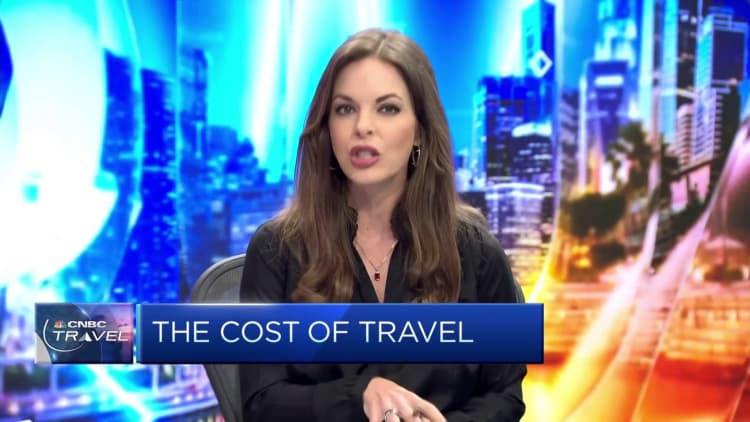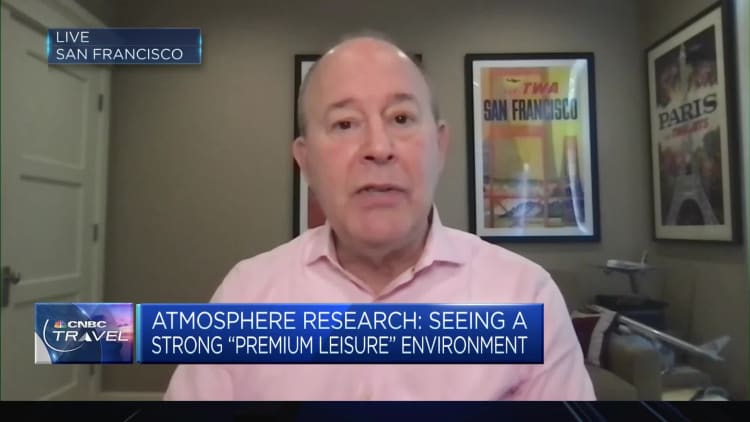
The tourism industry is largely back on track.
But the luxury industry’s high prices have not returned to normal following the coronavirus pandemic. In fact, they are growing every month.
According to luxury travel company Virtuoso, luxury hotel room rates have reached a “peak” this year, with average daily room rates up 70% from 2019.
A company representative told CNBC Travel, “July 2024 saw the highest growth, with an increase of 85% compared to July 2019.”
Prices for luxury train travel are also soaring, with prices at Accor’s yet-to-open La Dolce Vita Orient-Express rising 75% in 16 months. The train is scheduled to launch in Italy in 2025, with the starting price for a one-night trip rising from 2,000 euros in late 2022 to 3,500 euros ($3,776) last month.

Ticket prices on Belmond’s Venice Simplon-Orient-Express, another European luxury train, have also risen sharply this spring, from £3,530 in February to March, according to reviews on its website of £7,060 ($8,925).
Belmond has not responded to CNBC’s request for comment, but Accor told CNBC Travel that pricing and plans are “constantly changing.”
Travel prices are rising for many of the same reasons that affect other industries: inflation, rising labor costs, supply chain issues and debt service rates.
But travelers’ unwavering willingness to pay new prices means the “old” prices for five-star holidays may be a thing of the past.
When money “is no longer an issue”
Luxury travel prices remain firm as inflation and cost increases subside.
Henry Harteveldt, president of travel market research firm Atmosphere Research Group, said that’s because “the demand is there” amid significant price increases.

“For some of these guests, money is almost no object,” Harteveldt toldSquawk Box Asia” Monday. “These are wealthy and super-rich travelers, and for them, €1,000, $1,000 or more a night is nothing. For most consumers, it’s probably $250.”
Wealthy travelers also value new and different experiences, such as luxury train travel, he said.
“They want something exclusive…and these companies are going to take advantage of it as much as they can.”
Where pricing is important
Competition will drive down costs at budget and mid-size hotels for price-conscious travelers, Harteveldt said.
“For those of us living on this planet…cheap air tickets have been declining due to increasing competition,” he said. “Budget and mid-range hotels are among the fastest growing segments in the hotel industry. As such hotels open or expand the number of hotels in these categories, they will also introduce lower prices.”
He said booking in advance can save money on airfare, but the way hotels set their prices is different.
“With hotels, you either book in advance or wait until two weeks after your travel date to book,” Harteveldt said. “I personally book hotel rates that are refundable and changeable (because) I’ve noticed that in some cases hotel rates can drop closer to the check-in date if demand doesn’t meet their expectations.”
“The luxury craze continues”
Overall, demand for travel remains strong, but surveys show some travelers are starting to succumb to the cost.
But this has not had the same impact on the luxury travel sector, said Dave Goodger, managing director for Europe, the Middle East and Africa at Oxford Economics’ Travel Economics.
“While economic activity is flattening in some major developed markets, the luxury boom continues,” he told CNBC Travel.
He said the industry continues to face upward pressure on pricing for luxury experiences.
“This is because some travelers have begun to pursue more luxurious experiences,” he said. “It also reflects the fact that for households with higher net wealth, income and wealth levels, including accumulated savings, remain the same healthy.”





